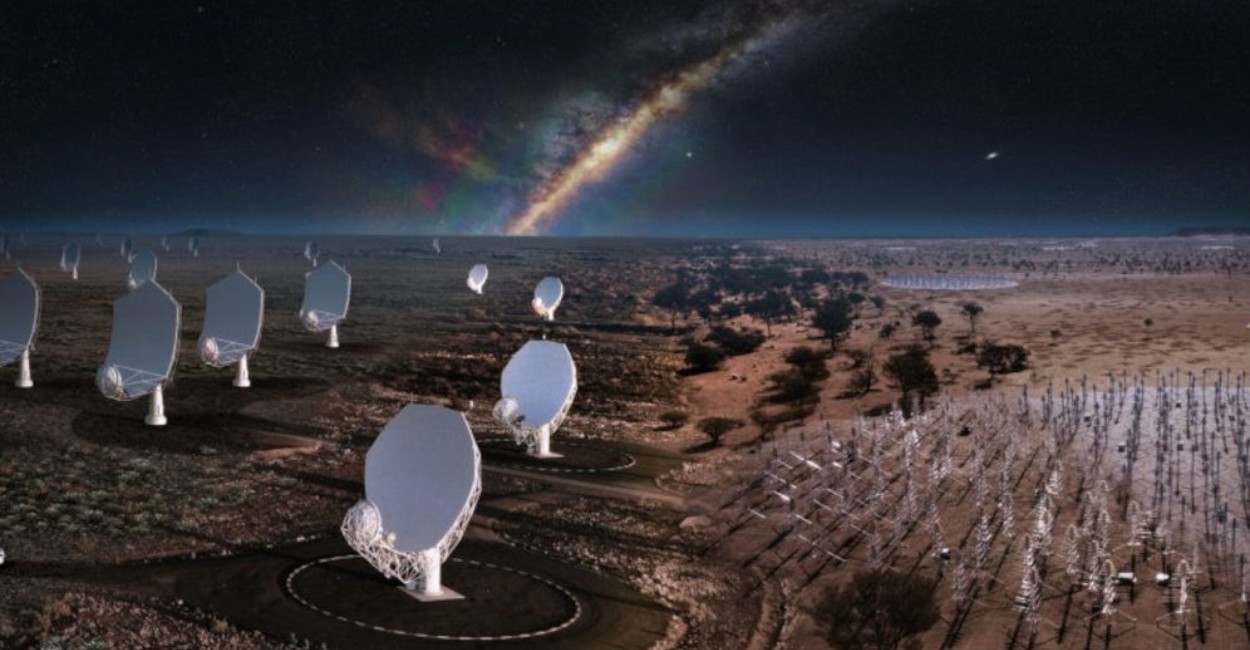African astronomers point to a golden age of astronomy on the continent as work starts in South Africa on the world’s biggest telescope.
“When we talk about advancing the astronomy agenda on this continent, for us, it’s more than about advancing the field of astronomy,” Kevin Govender, director of the International Astronomical Union’s Office of Astronomy for Development, told a meeting during the World Science Forum, held in South Africa’s legislative capital Cape Town from 6-9 December 2022.
“We know from our experience that … the growth of astronomy can be associated with the growth of development in the region, that we can use astronomy to stimulate skills development, to stimulate economic activity.”
SKA
His comments come as construction began at sites in South Africa and Australia of the Square Kilometre Array (SKA), expected to be the world’s biggest telescope when it is completed in 2028.
The sites in South Africa and Western Australia were chosen due to their clear skies and lack of radio chatter.
In terms of astronomy, Africa currently claims its place among international peers through initiatives such as the Southern African Large Telescope in Sutherland, the MeerKAT Radio Telescope, MeerLICHT all in South Africa’s Northern Cape province, the Oukaïmeden observatory in Morocco, the Entoto observatory Addis Ababa, Ethiopia, and the High Energy Stereoscopic System, in Namibia.
Golden age
In fact, the continent is living through a golden age of astronomy which they must take advantage, but challenges persist, says Thebe Medupe, African Astronomical Society (AfAS) president and North-West University astronomy professor.
“The total number of PhD astronomers in Africa is around 300, compared to 600 astronomers that are in the UK,” Medupe says.
However, Africa is still grossly underrepresented in terms of professional astronomers, in spite of the fact that we have these facilities that are coming up and that are at the cutting edge of astronomical research, he says.
Medupe called for initiatives that will invest in training more African astronomers as well as grow and strengthen small research groups that already exist and expand their storage footprint in as many African countries as possible.
“We don’t want Africa to end up producing the data and sending it off to Europe,” he says.
Promoting astronomy in Africa
Mirjana Pović, an astrophysicist working as an assistant professor at the Ethiopian Space Science and Technology Institute told the meeting that over the last ten years there has been an amazing progress with developments, resulting in more than 70 different associations, societies, amateur association societies across the continent, that constantly are involved in promoting astronomy on all possible levels.
The Square Kilometre Array in Africa that cooperates with eight other countries and the African Very-long-baseline interferometry (VLBI) network are the two most important initiatives of the continent, she says.
There are still many difficulties and challenges, she notes. “So most of the countries are starting from scratch, which means that there is a lot to do and they are starting with very limited resources in terms of the human resources.”
Except for South Africa, Pović says there is a lack of funding and support from the local government and in many of the countries, astronomy in Africa is still not accessible to everyone.
Astronomy vital for Africa’s growth
“We still need to do a lot of work …regarding the awareness, policy decision makers, why astronomy is important for African growth and inclusion,” Pović says.
Bernie Fanaroff, the retired director of the Square kilometre Array South Africa project, says “some basic funding should go to some sites, which might sound ridiculous, but in some countries getting funding is very difficult.”
Fanaroff suggests the need for good computing skills, travel funds and international fellowships for astronomy students. “Some students come to us with significant difficulty in computing, we should look forward to these challenges [helping them],” he says.
This post was culled from SciDev.net website.








